Relations between Agathon Rwasa and the power are not good as the statements from both sides show. The vice president of the National Assembly explains himself and also communicates his views on some topical issues.
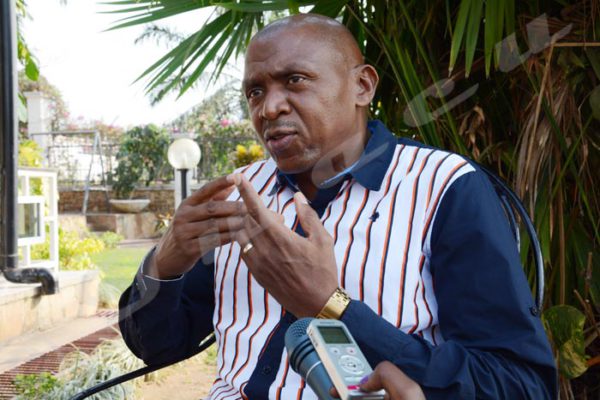
Agathon-Rwasa
How do you feel today as the n⁰2 within the national assembly?
I would rather prefer “as a Burundian citizen”. It is true that I hold this position, but I have empathy for my fellow citizens. The situation that Burundi is currently facing gives cause for concern. The country is facing a number of challenges, notably the economic and security ones, and especially the challenge that Burundian people don’t accept the institutions. A situation that dates back from 2015, and even a little before, in relation to the electoral process. It is a crisis that exploded with the umpteenth candidacy of President Nkurunziza. A candidacy that sparked quite a controversy, but was absolutely predictable.
Why?
Because of the lack of clarity in the interpretation of the constitution. There is a article that was inserted on purpose: article 302, which is a jinx on the people of Burundi. Even if there had been someone else to lead the country, the temptation would not have missed. Article 302 was deliberately introduced into the constitution for those who wanted to go into extra time.
That candidacy was followed by controversial elections that you had decided to boycott, yet you are now in the institutions which resulted from them…
In politics, we must always learn to make decisions, depending on the circumstances. Deciding to be in institutions did not please everyone but, in any circumstance, everyone is responsible for their own fate. The question is what we are doing in these institutions.
You once said that it is better to work for the country and protect your militants. Is it a reality today?
If we compare the situation FNL militants experienced in 2010 and that of today, there is a clear difference. There is a slight improvement because the logic of managers of power since 2005 has not allowed Burundian citizens to enjoy their rights and freedoms. The obvious example is the situation of political parties. It is as if there were a tendency towards a single party, and this affects almost everyone. It is not therefore by being in institutions that one enjoys preferential treatment. When the power’s intention is to monopolize everything, there is no exception unless one accepts to be servile. I didn’t go into politics to be subservient to anyone, and that’s probably why I have difficulty in cohabiting with some politicians.
Statements issued by Aimé Magera, who claims to be your spokesman, often denounce acts of violence by the power especially against your militants while you are in institutions. Isn’t it paradoxical?
CNDD-FDD wants to rule forever by all means, and cannot put up with any rival. You either adhere to the party or you keep quiet. CNDD-FDD leaders are not tolerant towards others and this since the creation of this party in 1994. We have experienced tragic situations, one could believe such an attitude could change over time, but nothing has changed so far.
They do not understand that there is a way to create harmony in the divergence of opinions and visions to initiate a gradual peace process to help Burundi.
Do you recognize Aime Magera as your spokesman?
He is mature and responsible for what he says or writes. The question is whether what he says is true or false. That’s all I can make as a comment.
Over the past few days, you said your life was in danger. Is it still the case or you now feel safer?
One is never completely safer in Burundi. How many people were murdered in broad daylight and perpetrators are not apprehended? Organized crimes are a reality and criminals are maybe protected. There may be a lull, but one must not rest on their laurels. We have to always remain vigilant.
The CNDD-FDD secretary general recently accused you of having a militia. Is it true?
In political calculations, there is always this kind of wild accusations, but behind which there is an objective. There are just two or three days, I heard about a plan to harm me. The latter aims to change the direction of the parliament. Rumor has it that the government wants to put at the head of all the institutions members of CNDD-FDD from the former guerilla. Since they fail to find fault with me, they now accuse me of supporting armed bands. So, there is any hidden agenda behind all this and the situation risks to be unbearable in this country.
Are you still an opponent, while you are in institutions?
I am an opponent. I’m not in institutions to swallow CNDD-FDD theses. I defend the cause for which I have always fought. The difference today is that, perhaps, I am in the national assembly. But opponents are not only those who are outside the institutions. There are people who were in institutions when I was outside; they did not believe me at all, least today that the roles have changed. But I am not the cause of their misfortune.
What is your opinion on the recent report of the National Commission for the Inter-Burundian dialogue CNDI and the controversy it has generated?
There are pillars on which stands Burundi, including the Arusha Peace Agreement and the Constitution. The Arusha Agreement can’t be abolished overnight. It can be evaluated, but the assessment must be objective, but not underhand. It is a text which has had its effect, which enabled Burundians to reconcile after a decade of war. The constitution emanates from the agreement, and may not be perfect. But I do not think it is a problem unless people read it with another agenda. If it means to hold a referendum, one cannot predict the outcome. It would take place first and only results could be the only determinant.
What do you think of the consultations by CNDI?
I partially participated in some meetings, but I felt that there was some manipulation. Seemingly illiterate people cited in an unsound way, the articles of the constitution to be changed mandates and spoke of terms with contradiction. I think that if people must express their opinions, the direct way is that of the referendum. But I think that amending the constitution or bury the Arusha Agreement is not what will solve Burundian problems.
It is a way to escape the real problems to get bogged down in unnecessary quarrels.
Do you believe in the inter-Burundian dialogue under the mediation of Benjamin Mkapa?
It is to be encouraged especially that the dialogue of CNDI associates only those who are in reality inside the country. But sincerely speaking, I think we are still far from making the dialogue successful because there are entrenched positions between parties. But we should make much effort because I think it is the egocentricity that is growing much more to this kind of reaction. No one is perfect. Everyone has their responsibilities and must play their part. We must accept each other and sink our differences for the national interest. But not to be guided by: “Budge up for me”.
How do you see relations between Burundi and Rwanda?
Since the outbreak of this crisis, I always said we must resort to diplomacy to solve the problem. Over the past few days, leaders of Rwanda and Burundi were friends, and the people had nothing to worry about. The latter are not either the cause of current relations between Kigali and Bujumbura. Both leaders can either resort to diplomatic channels or regional mediation in case of absolute necessity. Poor Burundian citizens were killed on Rwandan soil while they were going to sell their products. Over the past few days, social networks spoke of a Rwandan who was seriously wounded by men in uniform who spoke Kirundi. It is urgent that diplomacy works and it is not yet too late, because a poor peasant from Kabarore or Busoni risks being a victim of relations between our two countries on which his life depends.

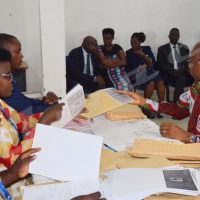
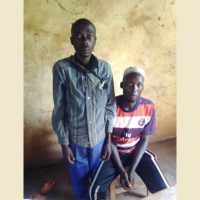

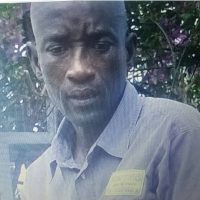
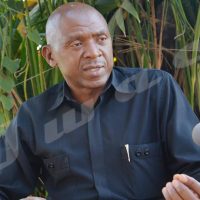













 IWACU Open Data
IWACU Open Data

